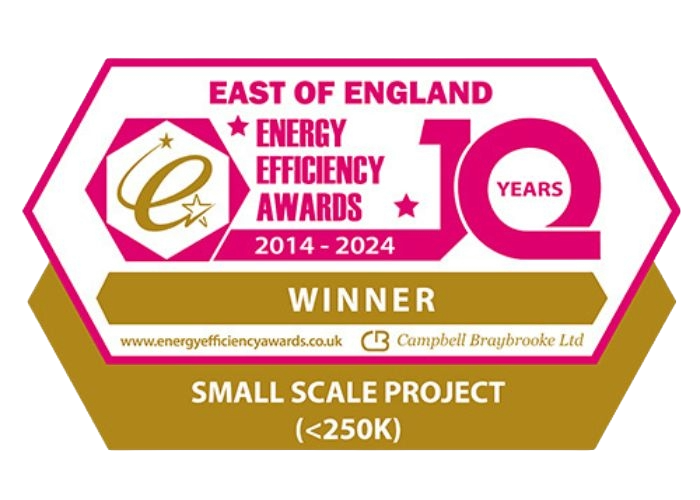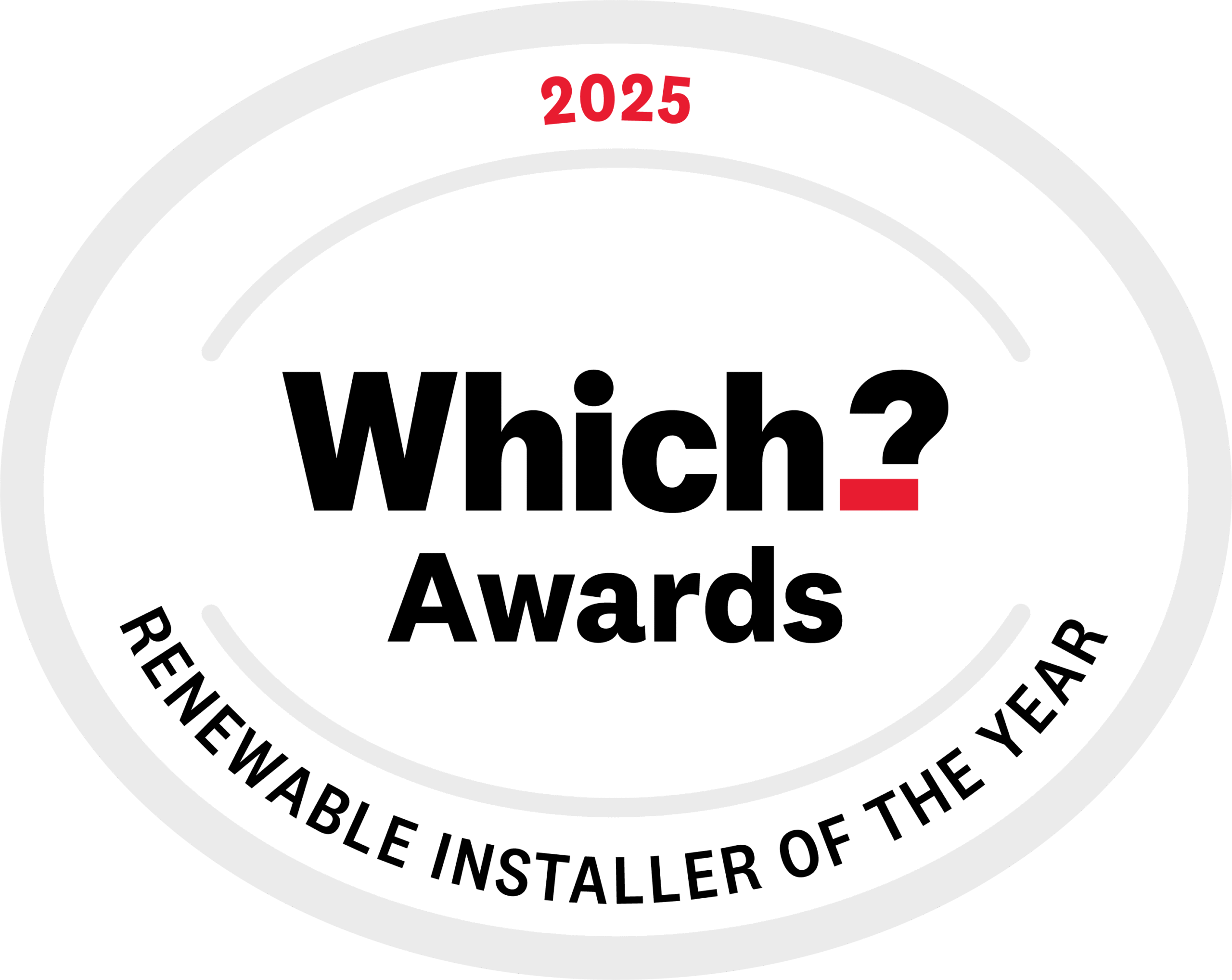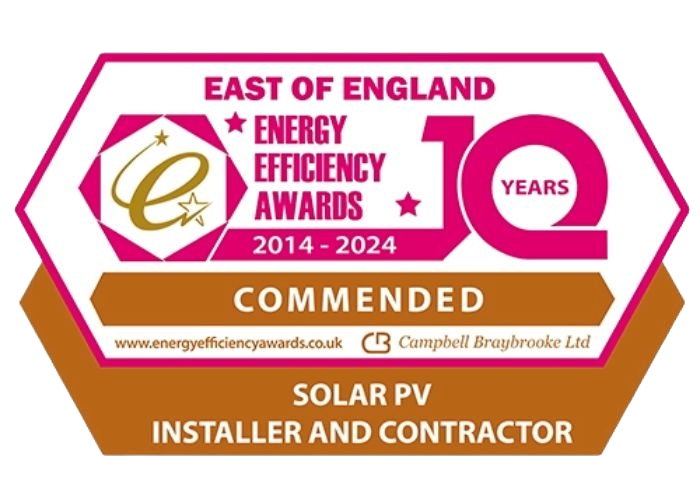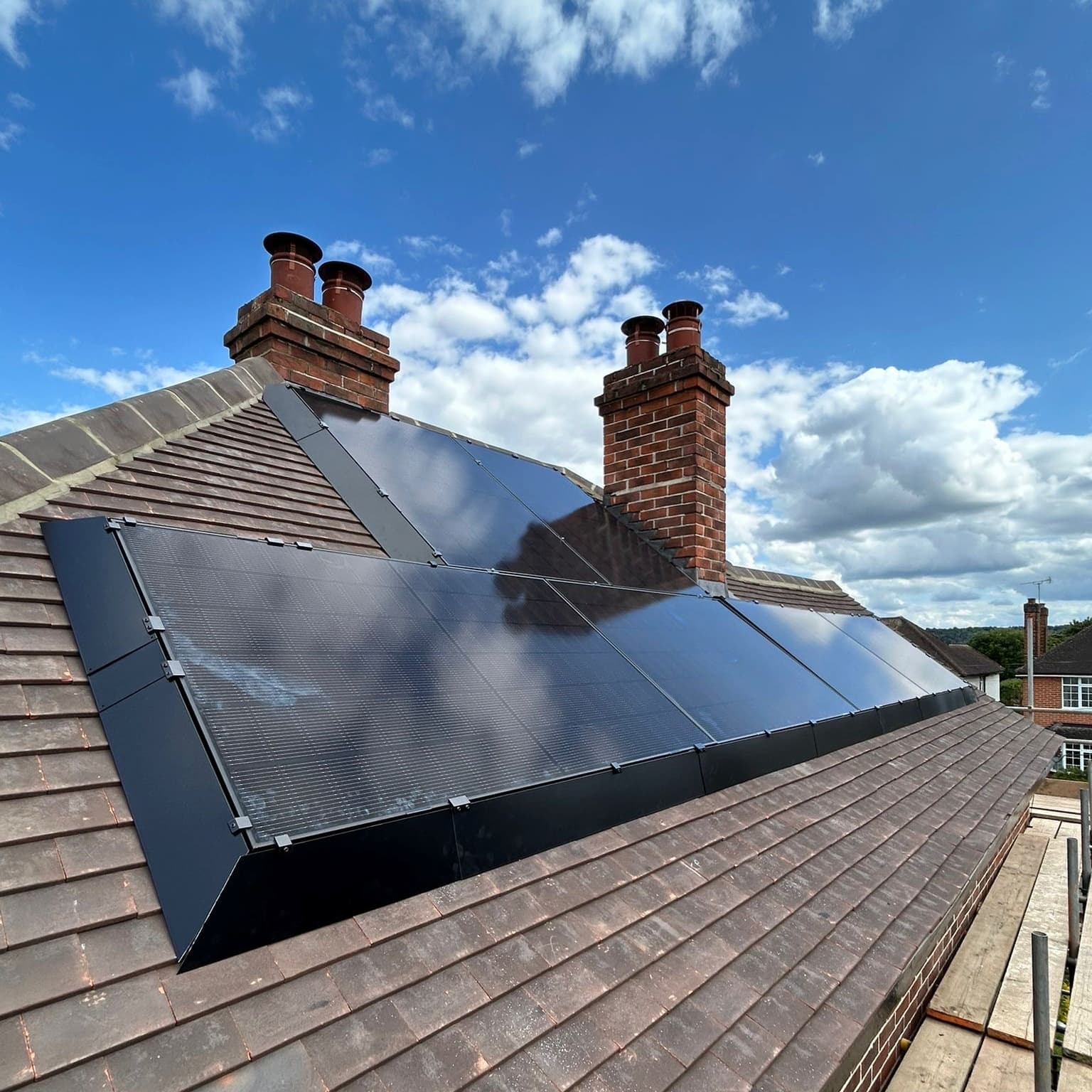Explore Our Solar FAQs
Here, you’ll find answers to some of the most common questions about solar energy and our services. If you don’t see your question answered here, please feel free to contact our team directly.



Illuminate Your Path to Solar Power
Many of our customers find that they can cover approximately 70-90% of their household needs with solar power alone. However, the exact figure depends heavily on your energy usage, the number of panels you opt to install and the wattage of the panels. Other factors such as shading, weather, time of year and cleanliness of the panels also play a role.
As an example, 10 solar panels with a power rating of 400 watts can produce around 3,400 kWh of electricity per year.
For a detailed overview of what your home could achieve, please get in touch with our team on hello@kimbletech.com.
This depends on what you choose for your home, but generally, average systems cost £8,000 and up, with an average installation cost of £14,000. However, every home is unique, as is the requirements and goals of the homeowner. So our team at Kimble Solar will work with you to find the best solution for you.
It’s also worth noting that there are finance packages available to help you pay for your system if required.
It’s becoming increasingly obvious that solar panel systems can in fact increase the value of your home. They can be a great feature for buyers looking for energy-efficient homes and to live in a home with significantly lower running costs. Many studies have proven that homes with solar panels sell more quickly and for higher prices than those without. However, the exact amount of value added will depend on factors such as the location, size, and age of the system, as well as the local property market.
Different studies quote different increases in value, but the general outlook is very positive. One study concluded that installing panels will increase the value of your home by approximately 50% of the installation cost. If this is the case, then this instantly halves the payback time!
Solar panels typically don't work during a power cut in the UK unless they are combined with a battery storage system or if they are not grid-tied.
Grid-tied systems switch off during a power outage is for safety reasons, so even if the sun is shining and your panels are generating electricity during a power outage, you won’t be able to use it.
If you have a battery, depending on the brand and type of battery, you can often still use a 3 pin plug connected to the battery to charge your phone, for example, but it won’t power your entire house as usual.
You can install a solar PV system which can continue powering your home regardless of power outages, but these systems are far more expensive, so you need to weigh up the frequency of power cuts, how crucial an energy feed into your home is (eg if you have critical life support machinery in use), and the added cost. For the average family, it generally isn’t worth it.
We will arrange a date with suits you, and 1-2 days prior, the scaffolders will arrive to erect scaffolding if required.
Our team will arrive on the selected day and install the solar panels. This usually takes 1 day on average residential properties but can take longer on larger or more complicated residential jobs, or on commercial jobs.
Whilst the solar panel installation team are at work on the roof, the electrician team will start installing the cable routes, the inverter and battery. This may take up to 2 days.
Once everything is installed, the team will give you a handover, showing you how to use the app and monitor the system. You will begin generating solar energy from day one!
Scaffolding will usually come down within 3 days. Mark will update you with an ETA.
Within 14 days you will receive your MCS and electrical certificates. You will also receive your DNO approval when ready, and then you can use all these documents to apply to your energy provider for SEG payments.
If required, you are welcome to schedule a follow up call with Benji, to help you with any operational queries.
There are some grants available for homeowners, but they are generally very difficult to qualify for. Usually you must be on some form of benefits and have an all-electric home (ie no gas) as examples of qualification criteria.
There are also lots of funding opportunities for businesses looking to go green. This can be at governmental level, or local council level. These grants and funding opportunities open and close frequently so it’s always worth checking before you make the investment.


